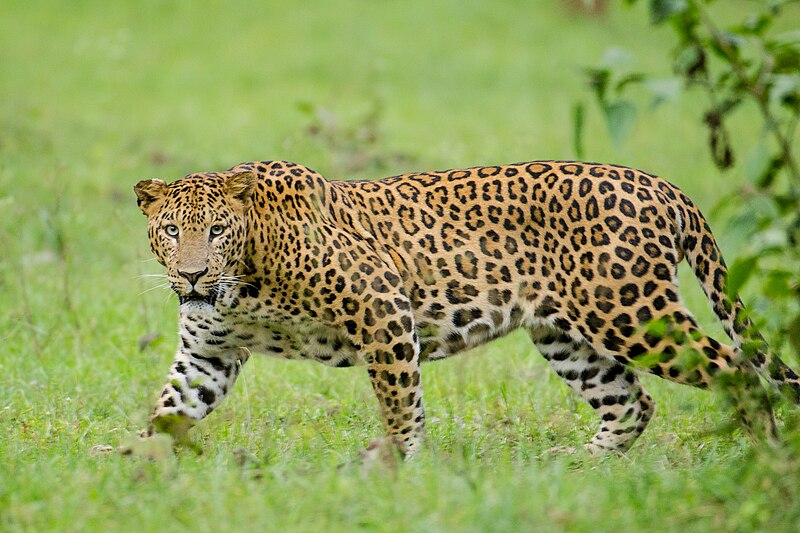 |
| Indian leopard |
Last month, two residents from Mumbai's Mulund suburb were attacked and wounded by a leopard in the Nanipada locality. Despite having survived and receiving treatment, the victims claimed that neither of them were paid any compensation from the forest department for the medical expenses acquired. The victims were casual laborer Balaji Dashrath Kamite, who was lacerated on his head and face, and Krisamma Hanumant Palle, a maid in the area who is currently having treatment after the leopard bit her on her right forearm. Both of these victims were not paid compensations, and have begged honorary wildlife warden, Sunish Subramanian, to help them with the issue. Mr. Subramanian stated that he has sent the victims' medical expenses and other press clippings to the Thane forest range and hopes that the forest department fixes the issue. In addition, Jitendra Ramgaonkar, the deputy conservator of forests in Thane, assured that he will review the victims' medical bills for repayment. He notified that another leopard attack victim, who had approached the forest department with a CT scan, was already paid the medical compensation by them. Altogether, six people were injured, including Mr. Kamite and Ms. Palle. The leopard which attacked these two residents is thought to have entered the Nanipada locality from the Eastern Express Highway on January 13 and caused panic before taking refuge in a ground floor house, where it was tranquilized by the forest department and then transported to Sanjay Gandhi National Park.
I feel really bad that these two leopard attack victims had to wait for a month to be paid compensation. They are very poor and work very hard to earn decent money, in order to survive. This includes paying medical bills, along with keeping food and water on the table for themselves and their families. What can they do when there is a delay in reimbursement for an attack by a leopard? How else can these people be able to pay their medical expenses and survive? This is why I firmly believe that it is highly essential to pay compensation to victims of leopard and other animal attacks. It should be part of efforts to mitigate human-wildlife conflict in India. Furthermore, it is equally important to reach out to the public and educate them about the importance of leopards and other predators and suggest safe alternative methods to prevent further attacks. This is because whenever a leopard wreaks havoc in a locality, the response is to kill the animal in retaliation. This method is unacceptable since leopards are endangered species in India and elsewhere in the world. Instead, I feel it is important to properly manage garbage disposal since it is known to attract stray dogs and pigs which in turn draw leopards into human settlements and result in human-leopard conflict. India's leopards may not be as well-renowned to the general public like lions and tigers, but they are part of the country's natural heritage and play a crucial role in maintaining the well-being of the forests by keeping the prey population under control.
View article here
No comments:
Post a Comment